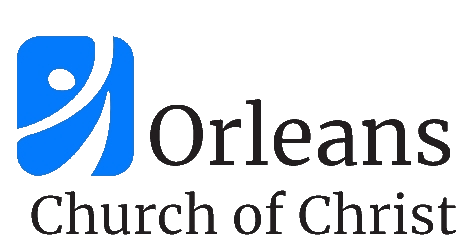For those unaware of its pronunciation or meaning, the phonetic spelling is “S. Q. Lapius,” the same as the non de plum of the late Dr. James Ball Naylor. (Perhaps only Morgan Country, OH readers will recognize the name and know of his legacy.) Most will recognize the symbol, however, as the medical insignia used yet today. You will see it here in this article. (Unable to upload image.)
Rather than take the time and space to record the origin and history of this symbol you can find it for yourselves. It is based on Greek mythology and has become the lasting insignia for medical practices. But in this article, I want to deal with another application of S. Q. Lapius.
Several years ago, an avid bible student who knew both my dad and my uncle (who was a specialist in Internal Medicine, specializing in geriatric cardiology) made an astute observation. She said, “Your uncle is a doctor of the body, and your dad is a doctor of the soul.” The compliment struck me as both deserved it and it accurately described them, for they were diligent students of their professions (Dad had also given more than 35 years to educational prowess). The fact she called them both “doctors” is the intriguing part, though only one held a doctorate, for they indeed cared for the life and health of the human: one physically and the other spiritually.
Dr. Naylor, as history documents, was noted as a fine physician. Yet, his more notable acclaim is as an author of novels, poetry, and prose whose subjects were of southeastern Ohio origin. To those who pondered why he didn’t concentrate on one or the other of these notable occupations, he would answer with something like, “Are not both body and mind in need of comfort and joy, especially when troubled with ailments beyond their control?” Similarly, Uncle Galen, like his father and grandfather before him, often used laughter as a generous part of his treatment of ailing patients. Why? Consider the Proverb writer’s answer: “A merry heart doeth good like a medicine: but a broken spirit drieth the bones.” (17:22) Likewise, as an educator, Dad frequently interjected humor with his teaching or guidance as an administrator.
As a gospel preacher, the seriousness of God’s word, and its critical effect upon the soul leaves no room for frivolity! Granted, there are humorous times found in the life of Christ, but not during His teaching or preaching to the populace. The beloved physician Luke (Colossians 4:14) undoubtedly understood this truth for he twice recalls the Lord speaking of Himself as, the “Physician.” (4:23; 5:31). This Great Physician knows well our ills both mental and physical and most certainly our spiritual ills. Why would we desire to seek any other counsel or any other treatment than His for our souls?
We Christians must also recognize our part in this realm of good health for the soul. Four times in the New Testament we find the word “hospitality.” Twice, it is listed as a requirement for elders (1 Timothy 3:2 and Titus 1:8) and twice it is commanded of every Christian (Romans 12:13; 1 Peter 4:9). Within the word “hospitality” is the word “hospital.” We all know what a hospital is for: the extensive, immediate, and continued facility dedicated to the healing of body and mind. Someone years ago, aptly stated, “The Lord’s church is not a sanctuary for saints, but a hospital for sinners.” When we use hospitality one toward another, it is in conjunction with building up one another in the most holy faith (Jude 20), admonishing in psalms, hymns, and spiritual songs (Colossians 3:16), and even praying for each other (James 5:16). It includes doing good to all men, but especially those of the household of faith (Galatians 6:10).
Aesculapius existed only in Greek mythology. True medical abilities in the treatment of the body or mind are a learned skill requiring years of study and practice, with additional studies required as medicine progresses. True spiritual abilities in the treatment of the soul require no “secular education” to master, but a diligent study (Hebrews 11:6) by which through the experience we note the need for continued study and practice. We might never merit being called “doctors” but being able to rightly divide His word is not an option!
